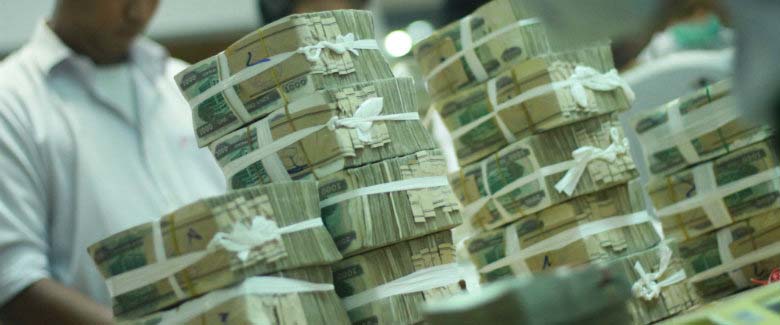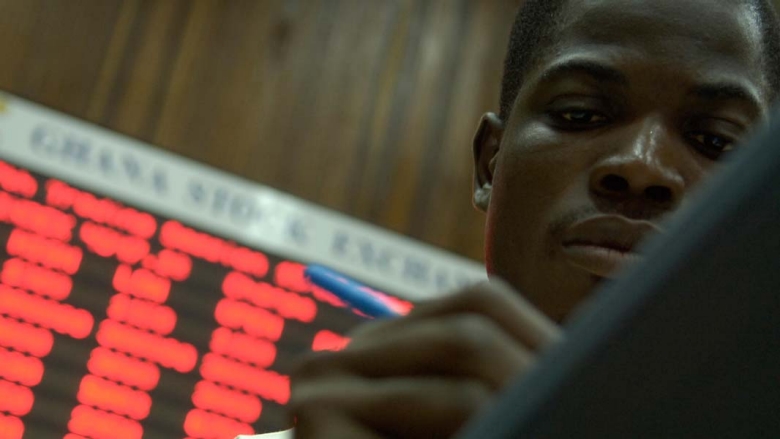Overview
Our Financial Integrity unit helps countries build capacity to pursue the ‘dirty money’ that flows through the global financial system, imposing a significant cost on national security, economic opportunity, and the rule of law in developing countries. As criminals gain new abilities to move funds across borders without detection, we are working to bolster the capacity of societies to uncover, prosecute, and prevent such movements in the future, as well as to restitute official funds stolen in corruption back to public coffers.
What We Do
The Financial Integrity team provides client countries with tools for increasing transparency and for preventing and pursuing illicit financial flows (IFF) to reinforce the integrity of the financial system. Our technical assistance in anti-money laundering/countering the financing of terrorism (AML/CFT) offers innovative avenues for fighting crime and addressing the intersections of IFF and development—including as it pertains to human security, corruption, financial inclusion, and the ease of doing business.
The Financial Integrity group also houses the Stolen Asset Recovery Initiative (StAR), a partnership between the World Bank Group and the United Nations Office on Drugs and Crime (UNODC). StAR was founded to support international efforts to end safe havens for corrupt funds, working with developing countries and financial centers to prevent the laundering of the proceeds of corruption, and to facilitate more systematic and timely return of stolen assets for public use.
Technical Assistance
Through knowledge products, practical tools, and training activities we support countries by:
- Supporting assessments around the risks and impacts of money laundering and terrorist financing in their jurisdictions
- Implementing a risk based-approach to AML/CFT on the basis of the above assessment, and developing counter-measures
- Reviewing the effectiveness of laws, regulations and institutional frameworks and recommending improvements
- Building capacity for systematic data collection on proceeds of crimes and associated financial flows
- Building the capacity of financial-sector supervisors for risk-based and effective supervision of the financial sector’s AML/CFT controls
- Building the investigative capacity of investigators, prosecutors and judges for ML and FT cases, including with regards to international information exchange
- Promoting financial inclusion by simplifying the customer due diligence and AML/CFT requirements in low-risk financial products and services, as appropriate
- Designing and implementing effective asset disclosure systems for public officials
- Promoting international best practices around new financial products, such as mobile money
Policy Development
The unit’s experience as a technical assistance provider and assessor, as well as its work on development challenges related to issues around AML/CFT, have allowed the team to become a strong voice for developing countries in global forums, including the Financial Action Task Force (FATF), the Financial Stability Board (FSB), the G20, and others. The unit contributes to global discussions on a wide range of issues, including anti-corruption efforts, financial inclusion, stolen asset recovery, asset disclosure and environmental crime. The unit has also collaborated with stakeholders to devise ways to bring down the costs of financial due diligence of non-profit organizations (NPOs), and to raise awareness among financial institutions of NPO operations and the financial controls they already have in place.
Assessments
The unit carries out assessments of countries’ AML/CFT regimes to diagnose their effectiveness and to identify areas of potential risk, as stand-alone diagnostics or in the context of the countries’ Financial Sector Assessment Program (FSAP). Assessments are used to determine technical-assistance needs and to inform the unit’s policy development work.
Results
- Since 2011, the Financial Integrity unit has guided over 100 countries through their National Risk Assessments for ML/TF (NRAs). In these endeavors, more than 5000 experts in the client countries have been trained on ML/TF risk assessments.
- 65 client countries have adopted reforms to strengthen their AML/CFT regimes. Most of those reforms involved legislation, with more than 50 countries establishing or revising their AML/CFT legal framework to tackle the illicit flow of money.
- Rapid response is provided to countries as they launch efforts to trace and recover stolen assets.
- Regional cooperation workshops have been held in the Middle East, North Africa, and Sub-Saharan Africa to train law enforcement and judiciary officials on investigative techniques for CFT.
Who We Work With
In our client countries, we work with AML/CFT-relevant authorities in the financial, legal and law enforcement sectors. Internationally, we work with the Financial Action Task Force (FATF) and similar regional bodies, the G7, the G20, the United Nations, the OECD, the OSCE, FSRBs, CARIN, regional Asset Recovery Networks, and the Egmont Group of Financial Intelligence Units. We also work closely with regional organizations and civil society organizations.

